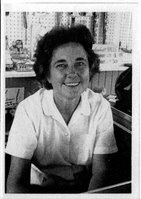Nothing Is
Truer Than Truth is a documentary film, telling in a very convincing way its own
truth—that the writer of the works of Shakespeare was not the man we thought at
all but Edward De Vere, who lived in the Elizabethan era, traveled to Italy
for a year and a half, and returned to bring the Renaissance to England almost
single-handedly.
 |
| Edward De Vere |
The
film, brilliantly written, produced and directed by Cheryl Eagan-Donovan,
relies heavily on the book Shakespeare by Another Name, a biography
of De Vere by Mark Anderson. It focuses on the years of De Vere’s life when he
lived in Italy, drawing parallels between the works attributed to the man from
Stratford and the real life studies and adventures of the English nobleman.
Recent thought has brought much attention to the lack of evidence that the man
Will Shaksper (sic) of Stratford had the scope of knowledge it would have taken
to write what is considered to be the greatest literature in the English
language. Eagan-Donovan says little about the man from Stratford, whose life
has confounded scholars for centuries, and wisely reveals instead the very
colorful and well-documented travels of Edward De Vere.
With
footage of the architecture and festivals of Venice, Nothing Is Truer Than the Truth is a visual feast, calling to mind
how Italy must have been in the 16th century. There are film clips
from Shakespearean productions featuring crucial scenes from A Merchant of Venice, Two Gentlemen of Verona, Romeo and Juliet, Twelfth Night and The Comedy of Errors--all illustrating
Shakespeare’s intimate knowledge of Italy in his time. There is commentary by
Derek Jacobi and Mark Rylance, both players who are knowledgeable about the
details of Shakespeare’s work and his times. Jacobi openly espouses the idea,
and here defends his position strongly, that whoever wrote the plays would have
to have been to the locales and known some of the characters he wrote about—and
that Edward De Vere fits that requirement remarkably.
Scholars,
too, appear in the film and discuss their findings about the Shakespeare
authorship question. Roger A. Stritmatter, who has done primary research on the
Geneva bible owned by Edward De Vere (and annotated in such a way as to confirm
its connections to Shakespeare’s writing), Alexander Waugh (grandson of
Evelyn), Richard Whalen, (author of Who
Wrote Shakespeare?), John Shahan, Diane Paulus, Tina Packer, and many
others, talk about Edward De Vere and the works of Shakespeare.
Nothing Is
Truer Than Truth is exhaustively researched and a joy to watch, leaving the viewer
with a sense that there is more to this story than we yet know.
